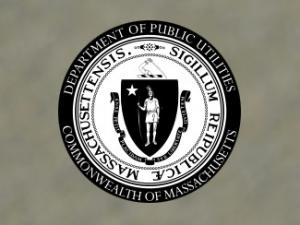Massachusetts Considers New Investigative Parameters

The Massachusetts Department of Public Utilities (DPU) has adopted interim protocols for conducting inquiries into the operations of alternative energy providers within the state. The department rejected assertions that the new guidelines should apply to more than just competitive energy suppliers. More particularly, the DPU denied recommendations that the guidelines also apply to distribution utilities, natural gas brokers or retail agents, and unlicensed entities that provide the types of services provided by licensed competitive supply companies.
Elaborating on its decision, the DPU maintained that distribution utility companies already are subject to well-established processes and procedures that provide for examination of regulatory violations, service quality, consumer service complaints, and billing disputes. Moreover, the DPU noted that, when reviewing a utility's return on equity within the context of a rate case, both quantitative and qualitative factors are taken into account, including management performance and customer service.
By comparison, the department found that competitive energy providers currently are subject to far less stringent monitoring and scrutiny. Consequently, the DPU deemed it reasonable to fashion interim protocols specifically tailored for assuring clear oversight over the competitive supply domain.
In declining suggestions that the rules should be expanded to apply to unlicensed competitive supply companies, not just licensed ones, the DPU pointed out that its regulations and the controlling statutory construct permit it to take licensure action and levy civil penalties against a competitive supply company that has consumer issues or has committed violations of DPU regulations. However, it said, those regulations explicitly define a competitive supplier as an entity licensed or certified by the DPU to sell electricity or natural gas and related services.
The department cited the fact that while the regulations do not explicitly define electricity brokers as those licensed or certified by the DPU, they do prohibit competitive suppliers from doing business with unlicensed or unauthorized electricity brokers. The department therefore concluded that the onus should be placed on alternative energy providers to ensure compliance with existing regulations and only contract with licensed electricity brokers or natural gas retail agents.
The department stated that if a competitive supplier uses the services of an unlicensed electricity broker or natural gas retail agent, the DPU will treat the supplier as being in violation of DPU regulations and subject to the processes and procedures outlined in the new interim guidelines. More importantly, though, the DPU pointed out that an unlicensed entity attempting to sell energy services within Massachusetts would, in essence, be committing fraud, which would give rise to enforcement authority beyond that held by the department.
The department commented that in such instances, it would be the Office of the Attorney General, not the DPU, that would have jurisdiction. Re Interim Guidelines for Competitive Supply Investigations and Proceedings, D.P.U. 16-156-A, July 6, 2017 (Mass.D.P.U.).



